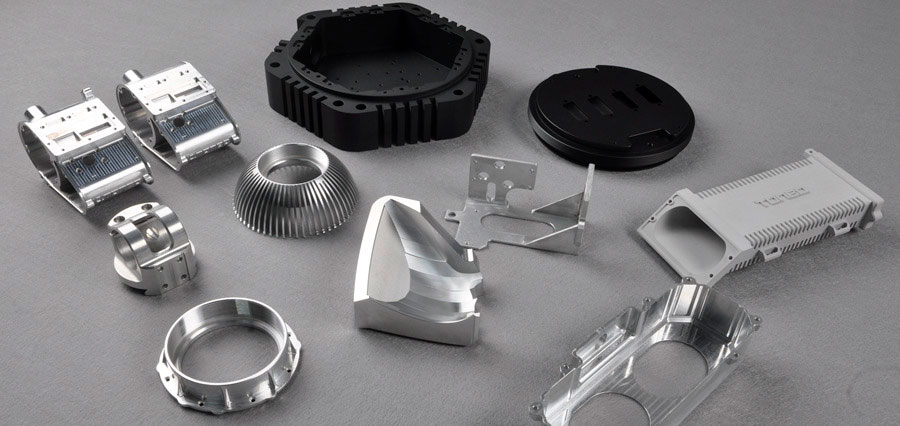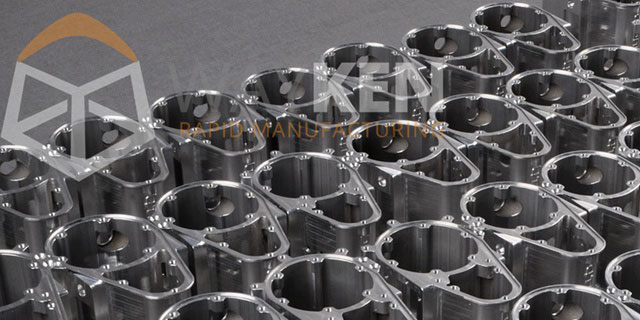Are you thinking of how to get quick-turn machined parts? Here are practical guides that may help you achieve successful custom machining.
Custom machined parts have a growing demand in the industry as the technology nowadays is rapidly improving. Custom machining is always a solution for manufacturing parts that demand special features and unconventional requirements used in various industries. The most common industries that rely on custom parts machining are aerospace and defense, automotive, and mining, where extreme accuracy on the parts is a must.
Discussed in this article are the applications of custom parts machining and what makes it successful.

1. Prototyping
A huge bulk of the demand in the machining industry is coming from the manufacturing of prototypes. The reason is that machining is one of the most convenient methods in creating functional prototypes with high strength and structural integrity.
2. Replacement Parts
Specialized machining is the solution for applications where some spare parts are needed but cannot be bought because they are already deemed obsolete. Machining is the most economical and reasonable way of fabricating these low volume metal parts rather than creating a mold for only a small number of parts.
3. Customized Parts
The demand for fabricating bespoke parts through machining increases as customization becomes more accessible for everyone. Examples of bespoke parts fabricated through machining are custom bicycle parts, motorcycle parts, collector’s item parts, and automotive parts. Get more low volume production and manufacturing services for your machined parts here.
4. Precision Applications
Machining is one of the most stable and reliable fabrication processes when it comes to precision applications. The machined parts can be very precise and can achieve a +/-.0001 tolerance in a 2-inch diameter part.

1. Availability of Various CNC Machines
The success of machining custom parts will significantly rely on the availability of CNC machines in a fabrication shop. The availability will dictate the capability of producing required parts through different machining processes. The CNC machines common in a fully capable fabrication shop are Lathe machines, milling machines, Mill-turn Machines, Electronic Discharge machining, Grinding Machine, and Hobbing Machines. These different types of machines have unique roles (that a specific machine can’t do) in fabricating a part.
Having these integral machines will enable a manufacturer to fabricate any part from pistons, cylinders, tailstocks, manifolds, bushing, gears, and any bespoke parts that the industry may demand. The availability of different CNC Machines is a main machine shop requirement that will define a shop’s capability to fabricate any custom part.
2. Cutting Tool Capability
Custom parts call for custom tools. Many custom machined parts have special features that play a very important role in the application as a whole but are very inconvenient to cut or machine. These may have unique profiles and non-standard controlled dimensions. These special features and profiles could not just be cut by a standard cutting tool seen in any tooling catalog. In Custom machining, the availability of a cutting tool for any feature will greatly impact the overall machining efficiency when dealing with custom parts.
How can cutting tool capability add to the success of machined parts?
In parts machining, there will be a lot of demands when it comes to the features needed to be created. Different automotive and aerospace industry applications will require custom-sized parts to fit their specific application. Sometimes to achieve one part feature, it will need 2-3 kinds of a cutting tool.
Simple Case Study: A straightforward example is cutting a multi-stepped hole in a hydraulic manifold or tailstock. When using conventional tools, this will involve using two different sizes of standard drills and one countersinking tool to cut this feature.
The situation changes when there is a specialized tool for cutting unconventional features. A good tooling capability means having all the tools required to cut any feature efficiently. For the situation above, having a customized porting tool to cut the multi-stepped holes in one operation will significantly impact instead of using multiple processes—one special tool to replace three standard cutting tools. There are many cases like this in the parts machining industry.
In the case mentioned, the capability to adapt the tools for any machining needs will greatly contribute to machining parts’ success. The reduced number of machining operations in achieving a single part feature results in the efficient use of available tool posts in a CNC machine. Furthermore, collating multiple operations in one pass will greatly reduce the machining time for finishing an entire part. Having a customized tool for a specific part dimension makes it easy to achieve the tightest tolerance required for an application. Achieving a part tolerance easier will call for lesser reworked and scrapped parts.
Projecting to a bigger picture, having the right toolings (both special and standard tools), and having excellent tooling adaptability to any application will significantly reduce overall machining and operational cost.
Below are some examples of special cutting tools for custom machining needs.
3. Availability of Various materials
The availability of various materials will enable a fabrication shop to produce parts for any type of application. In the custom parts industry, the material to be used to create a part is crucial for a part’s functionality. Different materials have unique mechanical properties that will suit any application (e.g., high strength to weight ratio of aluminum, High tensile strength of steel, the toughness of titanium)
Below are the most common examples of materials used in parts machining with their typical applications:
If you want to know more about custom machining solutions, especially in the automotive industry, please don’t hesitate to contact them.
Contact:
Tel: 86 0755 2373 1920
Email: candy@waykenrm.com
Scott Ellyson, CEO of East West Manufacturing, brings decades of global manufacturing and supply chain leadership to the conversation. In this episode, he shares practical insights on scaling operations, navigating complexity, and building resilient manufacturing networks in an increasingly connected world.